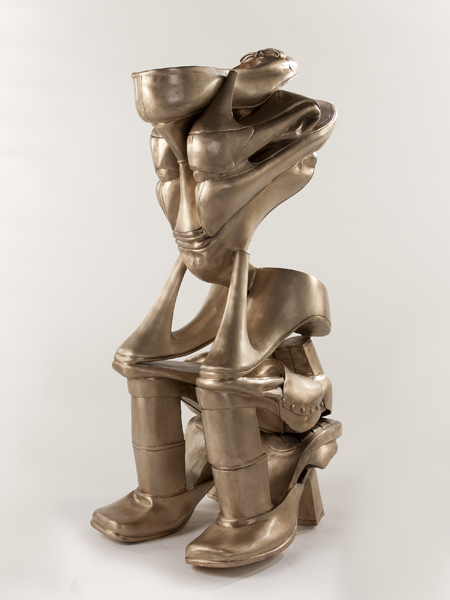Maus Contemporary
WILLIE COLE
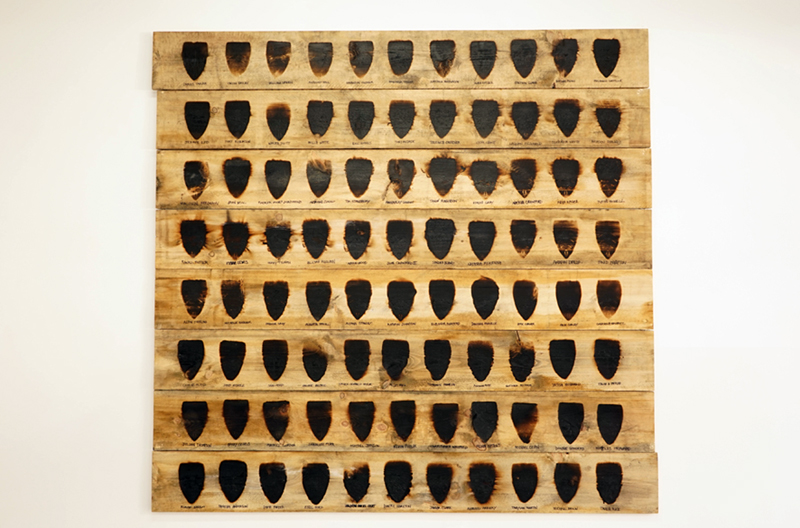 Willie Cole SAY MY NAME
Willie Cole SAY MY NAME
Willie Cole SAY MY NAME
2020
iron scorches on wood, black marker, eight stacked elements
96.25 by 94.25 in. (ca. 244,5 by 239,4 cm)
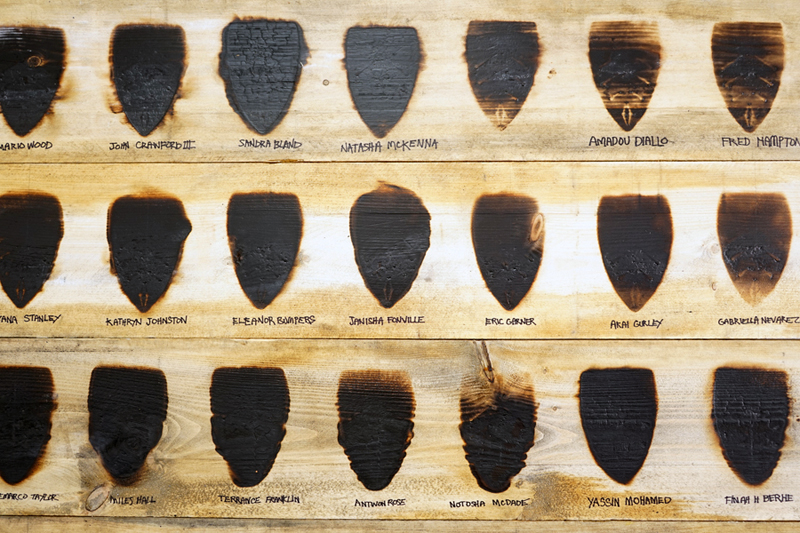 Willie Cole SAY MY NAME (detail)
Willie Cole SAY MY NAME (detail)
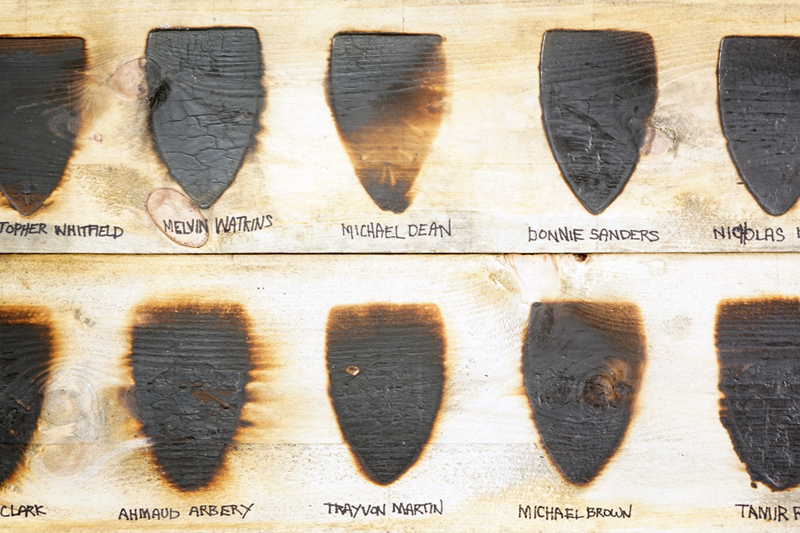 Willie Cole SAY MY NAME (detail)
Willie Cole SAY MY NAME (detail)
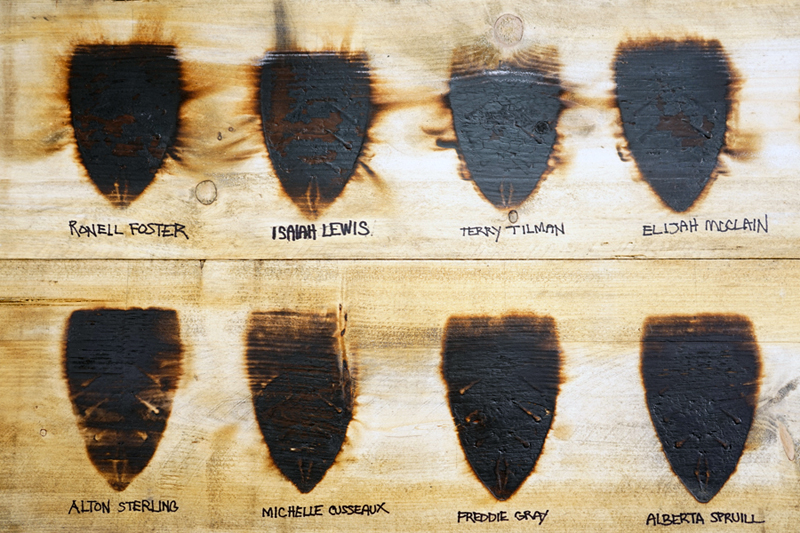 Willie Cole SAY MY NAME (detail)
Willie Cole SAY MY NAME (detail)
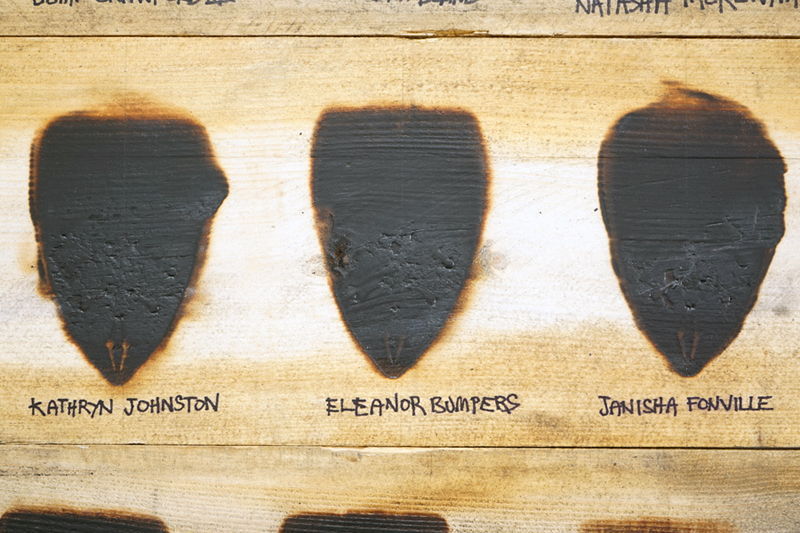 Willie Cole SAY MY NAME (detail)
Willie Cole SAY MY NAME (detail)
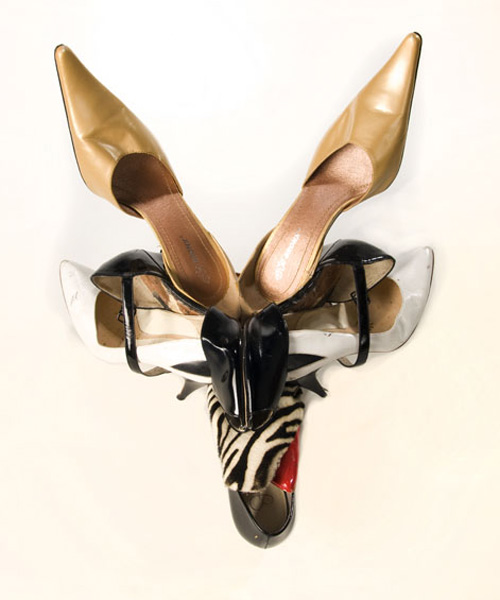
Bronx Bambi
2015
shoes, nylon thread, stainless steel wire, screws
ca. 22 by 17 by 11 in.
ca. 56 by 43 by 28 cm
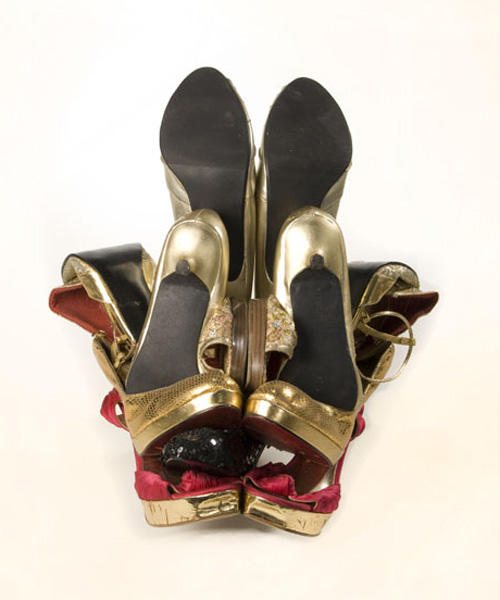
Goldylicks
2015
shoes, nylon thread, stainless steel wire, screws
ca. 17 by 15.25 by 8.25 in.
ca. 43 by 38.8 by 21 cm
LAST 3ft WILLIE COLE "WORRIER" BRONZE AVAILABLE
click on image for more information on Willie Cole's 3ft tall bronze - LAST ONE AVAILABLE
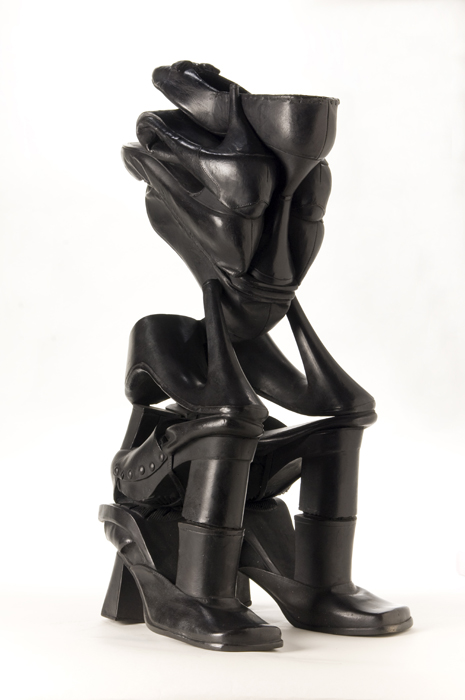 Willie Cole bronzes
Willie Cole bronzes
click on image for more information on Willie Cole's 3ft tall bronze - LAST ONE AVAILABLE
 Willie Cole bronzes
Willie Cole bronzes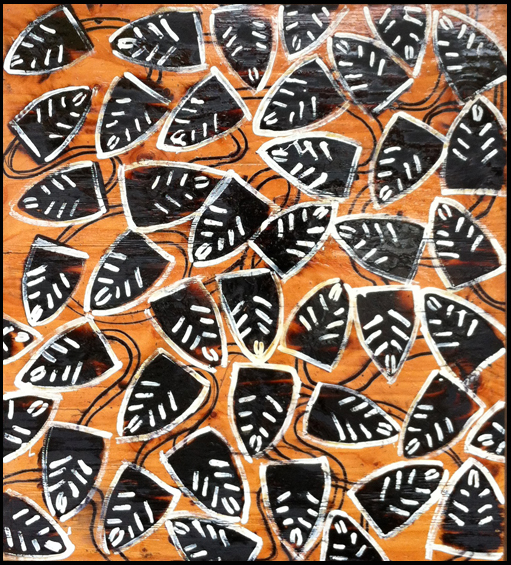
Warrior Seeds
2012
iron scorches and acrylic on wood
ca. 47 3/4 by 43 in
permanent collection of the Paul R.Jones Museum, Tuscaloosa, Alabama
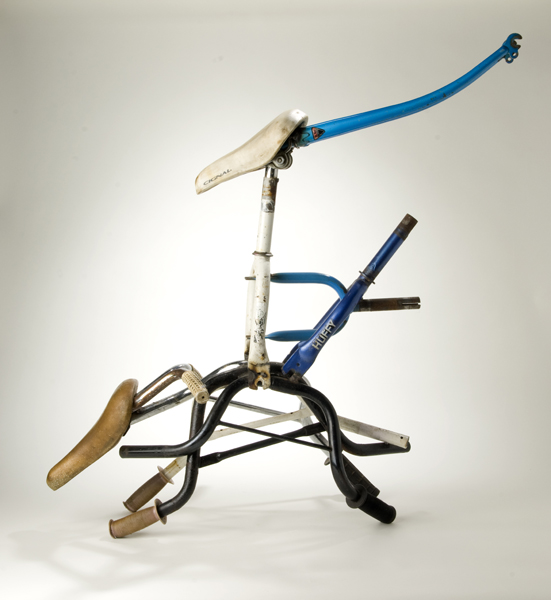
Tji Wara Mother and Child #1
2008
bicycle parts
ca. 33 by 16 by 32 in
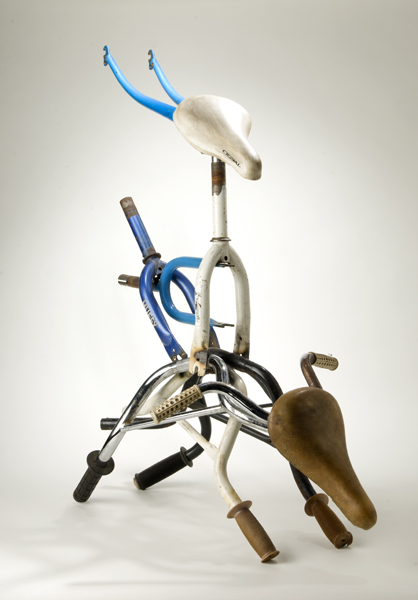
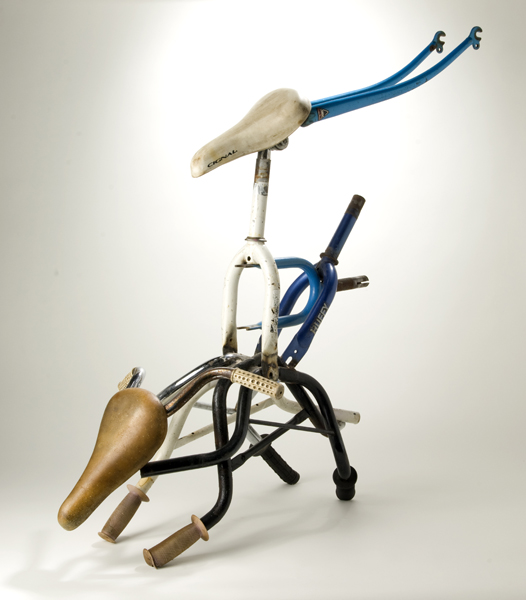
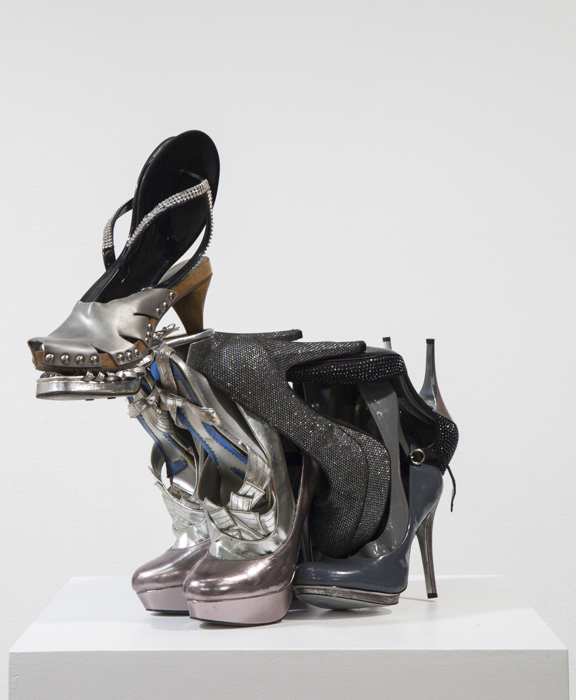
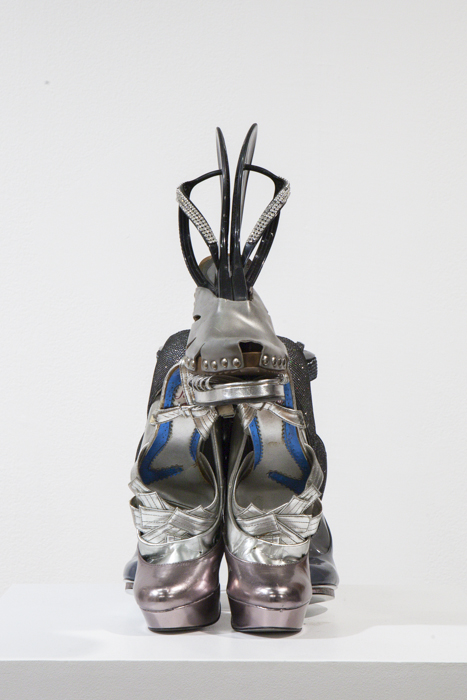
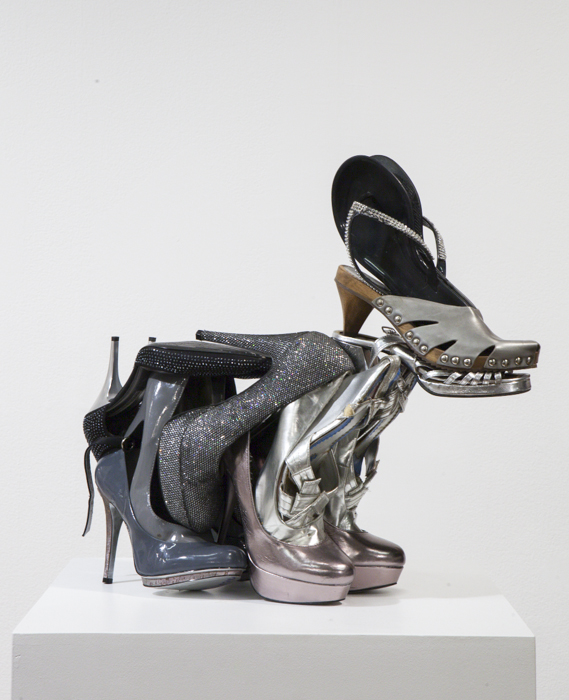
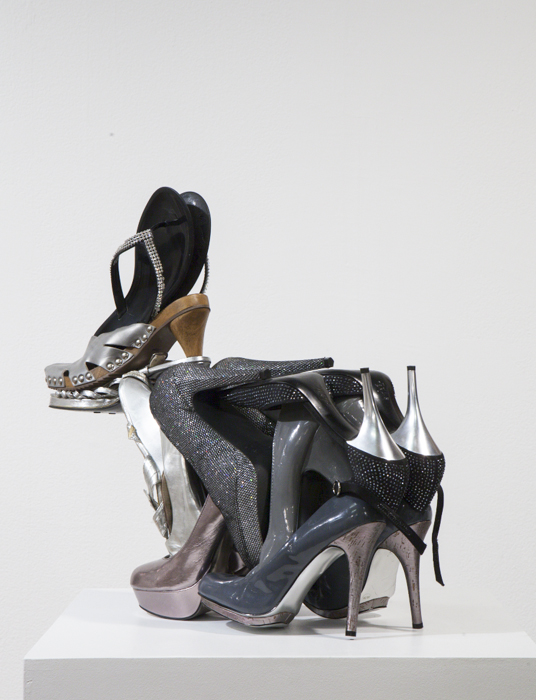
MBF (Man's Best Friend) III
2014
shoes, metal wire
ca. 19.5 by 7.5 in.
ca. 21 in. H
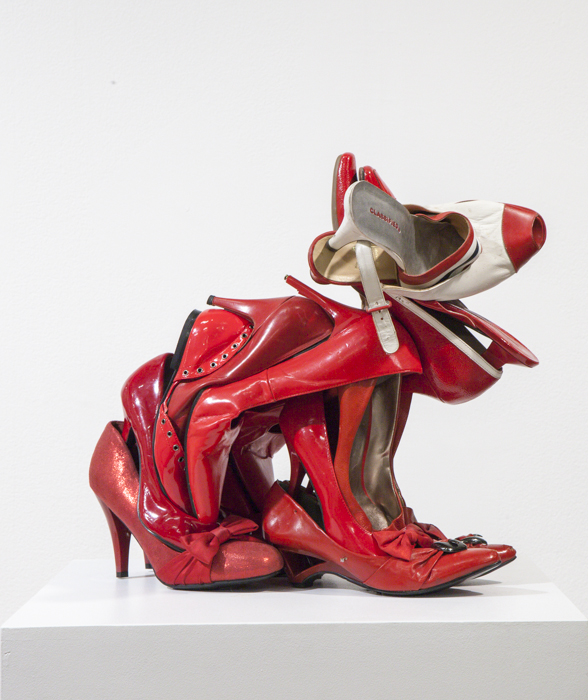
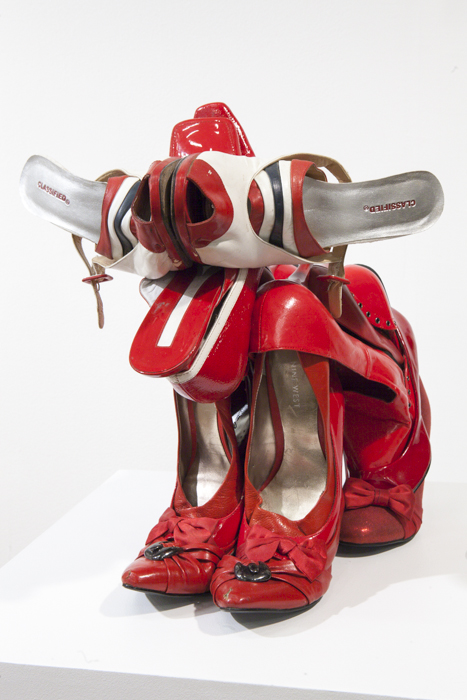
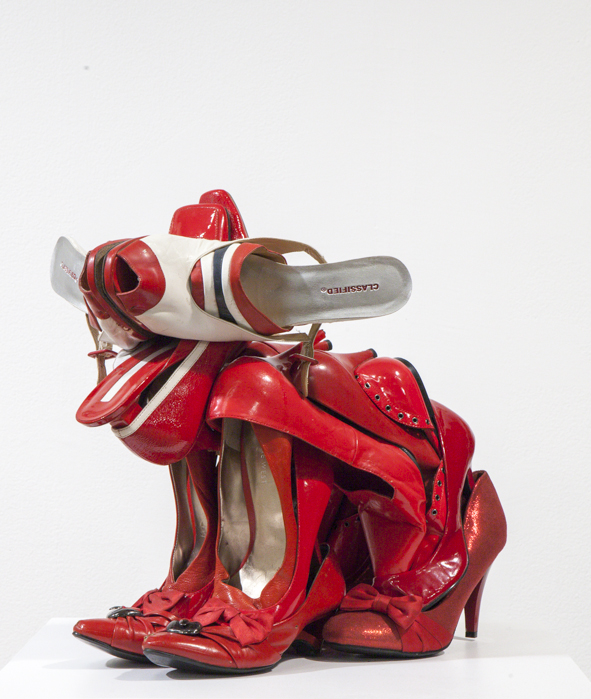
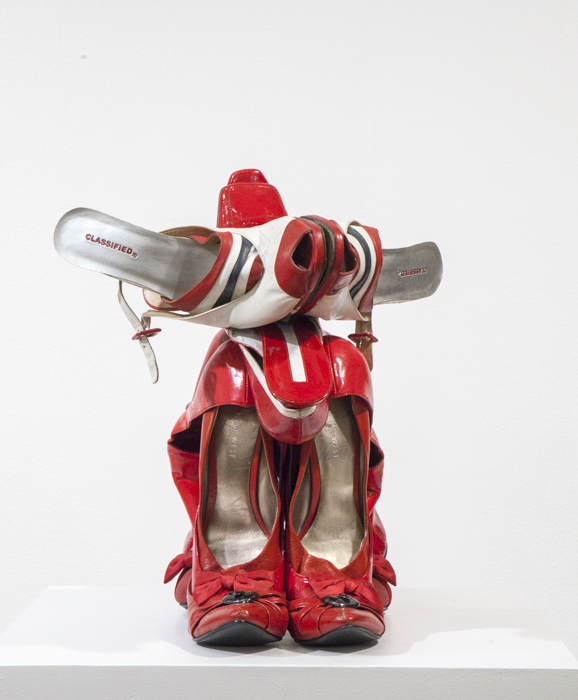
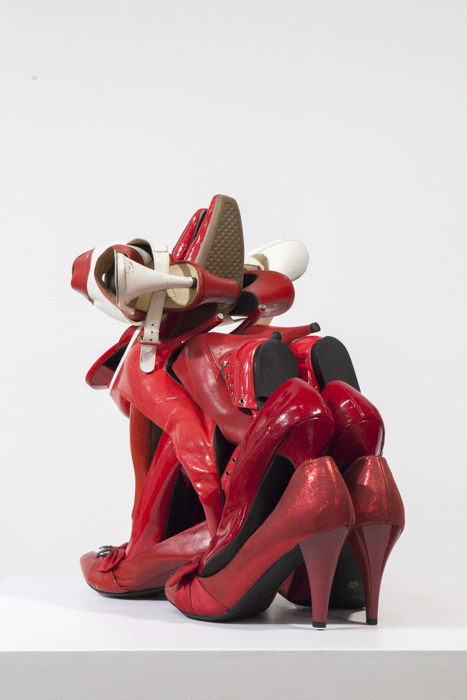
MBF (Man's Best Friend) IV
2014
shoes, metal wire
ca. 15 by 22 in.
ca. 17 in. H

Five Stances For Domestic Defense
a set of five scorches on paper, framed individually
2013
scorches on paper
24 by 18 in. each
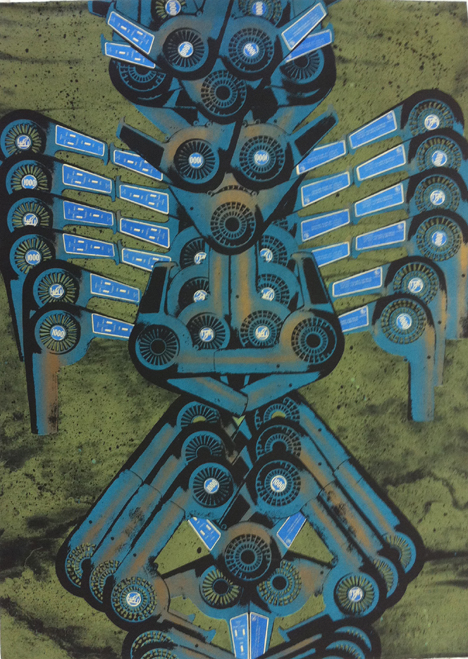
E21000TM
1991
Photolithograph, with metallic powder additions
and collage (chine colle) on black Arches paper
THIS WORK IS INCLUDED IN THE PERMANENT COLLECTION OF MoMA
see also image (detail) hereunder
edition of 30
signed and editioned on front
ca. 41 1/2 by 30 in.

click on the small image hereunder
and see the one in the MOMA collection
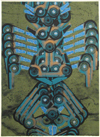
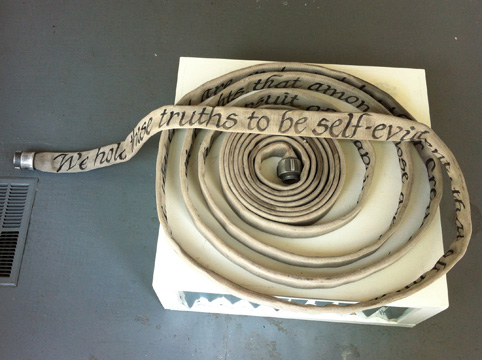
Civil Constrictor
2013
oil paint on vintage fire hose
dims variable (as installed ca. 7 by 55 by 30 in.)
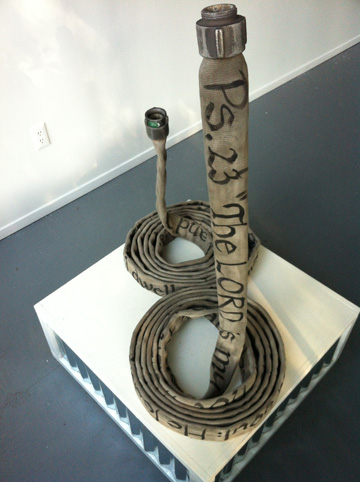
Birmingham Rattle Snake
2013
oil paint on vintage fire hose
dims variable (as installed ca. 40 by 36 by 18 in.)
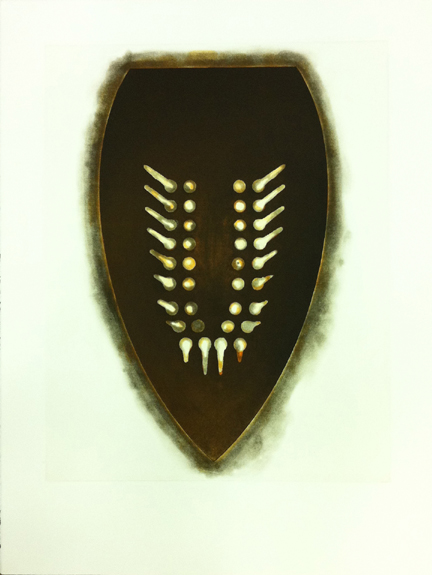
Home Mark
2011
edition of only 16 !
intaglio print (spit bite and aquatint) on Rives BFK paper
signed, editioned, titled, and dated
ca. 23 3/4 by 18 5/8 on ca. 31 3/8 by 23 3/4 in. paper

¡No mas!
2011
edition of only 8 - last two available!!
line etch, aquatint and chine collé on Rives BFK paper
signed, editioned, titled, and dated
ca 26 1/2 by 20 1/4 on ca. 32 1/2 by 25 1/2 in. paper
a rare Stowage Study

Stowage Study
1997
woodcut
red ink, and red tape on paper
ca. 56 1/4 by 104 3/4 in.
"I think that when one culture is dominated by another culture, the energy or powers or gods of the previous culture hide in the vehicles of the new cultures. . .
I think the spirit of Shango (Yoruba god of thunder and lightning) is a force hidden in the iron because of the fire, and the power of Ogun--his element is iron--is also hidden in these metal objects.
Stowage is a woodcut, and it's made by embedding actual objects into plywood, then inking those objects and the wood itself, and then putting paper with that and burnishing the back of the paper. So, it's probably one of the most primitive styles of printmaking. I cut holes in the plywood, and then I cut circles to fit the hole, and then I cut the shape of the iron out of the circle that fits the hole, and I put the iron sole into the hole. The reason I did it that way is because I wanted to use the line from the cut as part of the design. I could have just put the iron into the plywood, only cutting out the shape of the iron, but I wanted to have the circle around it also. Then the center panel is actually a piece of plywood where the shape of the ironing board has been cut out and then the ironing board is embedded in that. The word "stowage" refers to human cargo on a ship, transporting slaves to the so-called "new world." I discovered this image in a history book that I had received when I was a kid called Ebony Guide to Negro History. It came out in maybe 1965, and they had this chart that showed the slave ship. It's a very popular image, it's probably in most history books. They don't show you the real serious, heart–wrenching images. They show you the drawing of the ship, and the drawing of the slaves stacked like sardines. As soon as I saw that image, it looked like an ironing board to me. And the same way I have a collection of irons, at that time I had a collection of ironing boards too. So I chose one that had lots of detail, because there were lots of slaves stashed or stuffed in every ship. And the iron images around there can represent the way the slaves were laid into the ship, or they can represent the various tribes that each African came from, before they became slaves in the U.S. So it's kind of like a chart, too, to indicate these things. The piece is made as a woodcut because I wanted the patterns in the plywood to simulate the patterns in the ocean."
-- Willie Cole
I think the spirit of Shango (Yoruba god of thunder and lightning) is a force hidden in the iron because of the fire, and the power of Ogun--his element is iron--is also hidden in these metal objects.
Stowage is a woodcut, and it's made by embedding actual objects into plywood, then inking those objects and the wood itself, and then putting paper with that and burnishing the back of the paper. So, it's probably one of the most primitive styles of printmaking. I cut holes in the plywood, and then I cut circles to fit the hole, and then I cut the shape of the iron out of the circle that fits the hole, and I put the iron sole into the hole. The reason I did it that way is because I wanted to use the line from the cut as part of the design. I could have just put the iron into the plywood, only cutting out the shape of the iron, but I wanted to have the circle around it also. Then the center panel is actually a piece of plywood where the shape of the ironing board has been cut out and then the ironing board is embedded in that. The word "stowage" refers to human cargo on a ship, transporting slaves to the so-called "new world." I discovered this image in a history book that I had received when I was a kid called Ebony Guide to Negro History. It came out in maybe 1965, and they had this chart that showed the slave ship. It's a very popular image, it's probably in most history books. They don't show you the real serious, heart–wrenching images. They show you the drawing of the ship, and the drawing of the slaves stacked like sardines. As soon as I saw that image, it looked like an ironing board to me. And the same way I have a collection of irons, at that time I had a collection of ironing boards too. So I chose one that had lots of detail, because there were lots of slaves stashed or stuffed in every ship. And the iron images around there can represent the way the slaves were laid into the ship, or they can represent the various tribes that each African came from, before they became slaves in the U.S. So it's kind of like a chart, too, to indicate these things. The piece is made as a woodcut because I wanted the patterns in the plywood to simulate the patterns in the ocean."
-- Willie Cole

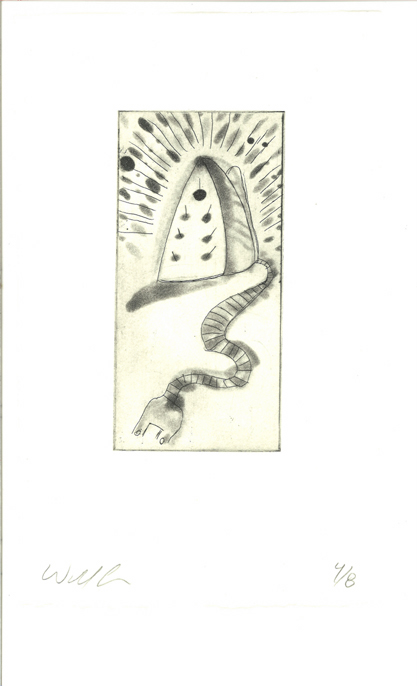
Curious Iron
2011
intaglio on BFK Rives
12 by 7 1/2 in.
(image 6 7/8 by 3 3/8 in.)
edition of 8 only !!!
signed and editioned on front
titled and dated on back
Men of Iron
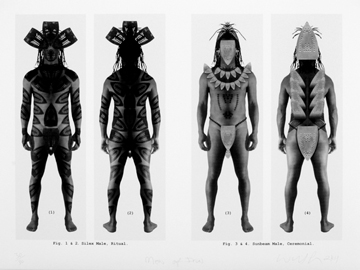
last one available of only two APs!!!
Men of Iron AP 1/2
2004
archival inkjet print
edition of 30 + 2APs
ca. 21 by 28 in.
signed, titled, and editioned on front
Wayside
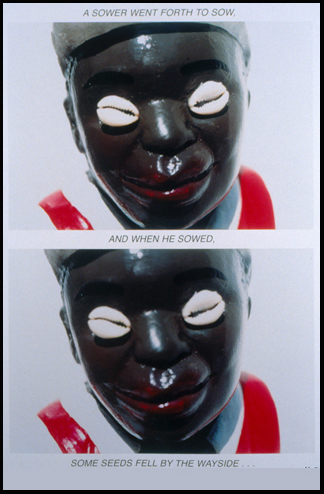
Wayside
"A SOWER WENT FORTH TO SOW,
AND WHEN HE SOWED,
SOME SEEDS FELL BY THE WAYSIDE... "
1998
c-print
very rare large 37 by 28.75 in. version of this iconic print - only 2 were printed.
Last one available!
Maus Contemporary's booth at the 2014 Volta NY art fair highlighting gallery artist Willie Cole's work
with a solo booth presentation of selected works, spanning 25 years of practice by the artist.
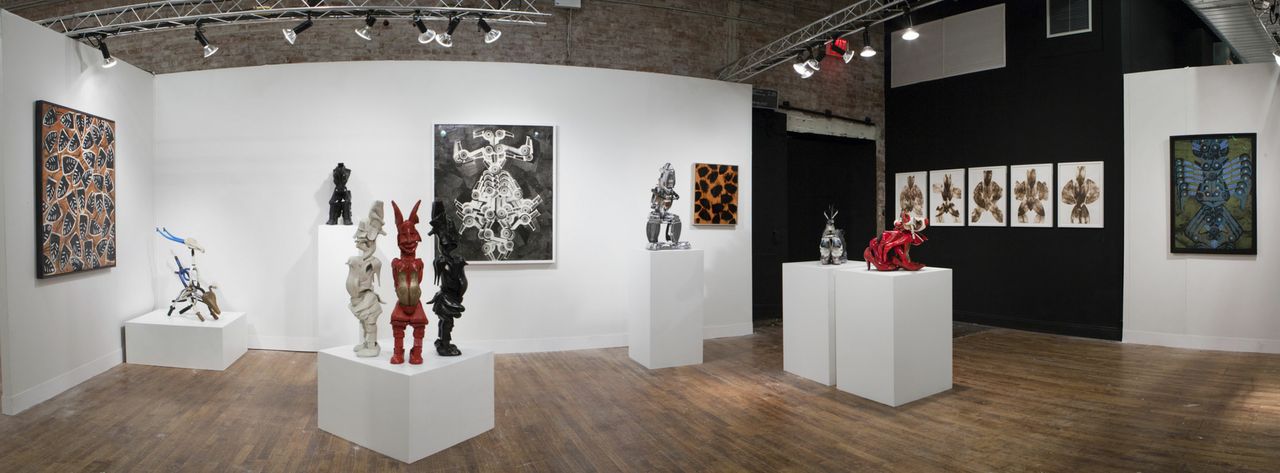 view more images from Volta NY 2014
view more images from Volta NY 2014
with a solo booth presentation of selected works, spanning 25 years of practice by the artist.
 view more images from Volta NY 2014
view more images from Volta NY 2014
